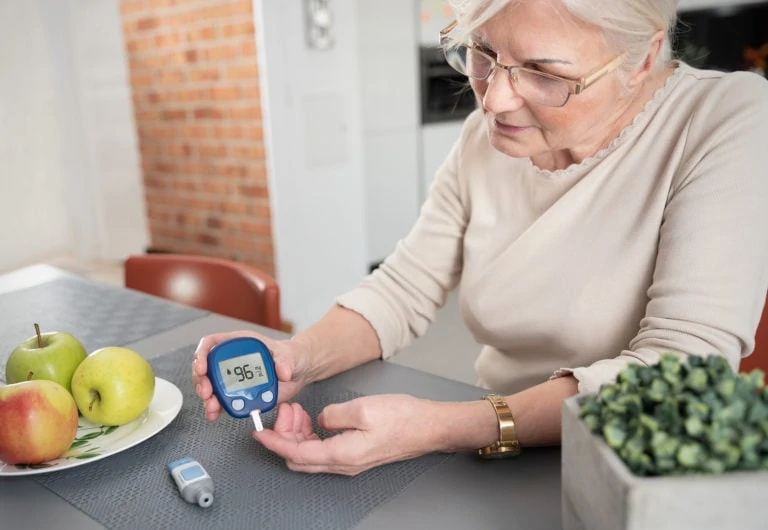Did you know that 60 percent of people with diabetes skip their annual eye exam? While it’s important to take care of your eyes at any point in time, it’s even more crucial if you have diabetes. Diabetes and vision clearly correlate. Meaning the disease has the potential to lead to crippling eye conditions that put your overall vision at risk. Learn more about the possible consequences of poorly managed eye care and diabetes.
Diabetic Retinopathy
Diabetic retinopathy occurs when blood vessels in the retina at the back of your eye experience damage. Its symptoms aren’t always noticeable at first. However, it can lead to vision loss if it goes untreated.
Diabetic retinopathy symptoms include small, dark spots or strings that seem to float; blurry vision; larger dark spots in your field of vision; and problems or inconsistencies with colors. This condition usually occurs in both eyes. Treatment for diabetic retinopathy can involve laser, medication injections, or surgery. Seeing your eye care provider for routine exams can help ensure that this condition is detected early or monitored until treatment is needed.
Cataracts
Cataracts are a cloudiness that affects the lens in your eye. While anyone can and will develop cataracts over time, your risk is higher when you have diabetes.
Cataracts are three to four times more prevalent in patients with diabetes under the age of 65, reports the World Journal of Diabetes. The cloudiness usually starts out affecting a small area of the lens and becomes more widespread over time. As they become larger, cataracts can eventually cause vision impairment.
Some symptoms of cataracts include cloudy or blurred vision, sensitivity to light, and trouble seeing at night. You might also see halos around lights and need to read in a brighter environment.
Cataract surgery can help correct this vision impairment. Surgical procedures involve removing the lens and putting an artificial one in its place.
Glaucoma
Glaucoma develops when the optic nerve in your eye suffers damage, which is usually caused by high eye pressure. This condition can lead to blindness when it is left untreated, so it’s important to catch it early with routine eye exams.
Glaucoma symptoms can include blind spots that affect your central or peripheral vision. However, this condition may not illicit obvious symptoms until the condition reaches the advanced stages. Our glaucoma specialists can check for this condition and go over treatment options, such as surgery to ease pressure in your eyes, if needed.
Keeping up with your eye health on a regular basis is highly important, especially when you have diabetes. Our team of eye care professionals contains the top cataract surgeons in Northeast Florida who can treat a wide range of vision problems. Please contact Florida Eye Specialists, the premier eye surgery center, to request an appointment.

